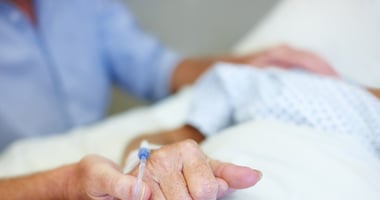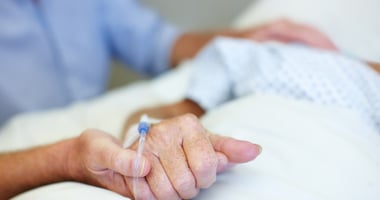Haloperidol, Ziprasidone Found Ineffective in Treating Patients With Delirium in the ICU
 |
“For more than 40 years, intravenous antipsychotic medications have been used to treat delirium in hospitalized patients,” wrote E.W. Ely, M.D., of the Vanderbilt University Medical Center and colleagues. “In this double-blind, randomized, placebo-controlled trial of intravenous antipsychotic medications for the treatment of delirium in the ICU, there was no evidence that either haloperidol or ziprasidone led to a shorter duration of delirium and coma.”
The study involved patients with acute respiratory failure or shock who developed hypoactive or hyperactive delirium at 16 U.S. medical centers. Of the 566 patients who developed delirium during the trial, 192 were randomly assigned to receive haloperidol (maximum intravenous dose, 20 mg daily), 190 received ziprasidone (maximum intravenous dose, 40 mg daily), and 184 received placebo. Patients were discontinued from drug or placebo after 14 days or at ICU discharge, whichever occurred first.
Delirium was assessed using the Confusion Assessment Method for the ICU (CAM-ICU). The primary endpoint was the number of days alive without delirium or coma during the 14-day intervention period. A secondary endpoint was duration of delirium.
The researchers found no significant difference between the treatment groups on the primary endpoint: the median number of days alive without delirium or coma was 7.9 in the haloperidol group, 8.7 in the ziprasidone group, and 8.5 in the placebo group. Neither haloperidol nor ziprasidone led to a shorter duration of delirium compared with placebo.
“Why did the trial fail to show benefit? It is likely that our concept of delirium is flawed,” suggested Thomas P. Bleck, M.D., of the Department of Neurological Science at Rush Medical College, Chicago, in an accompanying editorial.
“The neurochemistry of sudden alteration in mentation [mental activity] is complex and involves several neurotransmitters as well as structural, immunologic, and network alterations and possible brain infection that is not clinically evident,” he wrote. “The investigators deserve credit for conducting a difficult trial, but it would have been astounding if there were a single magic bullet for the restitution of normal brain function in ICU patients with delirium.”
For related information, see the Psychiatric News article “Point-of-Care EEG Device Could Ease Efforts to Detect Delirium.”
(Image: iStock/A stockphoto)






